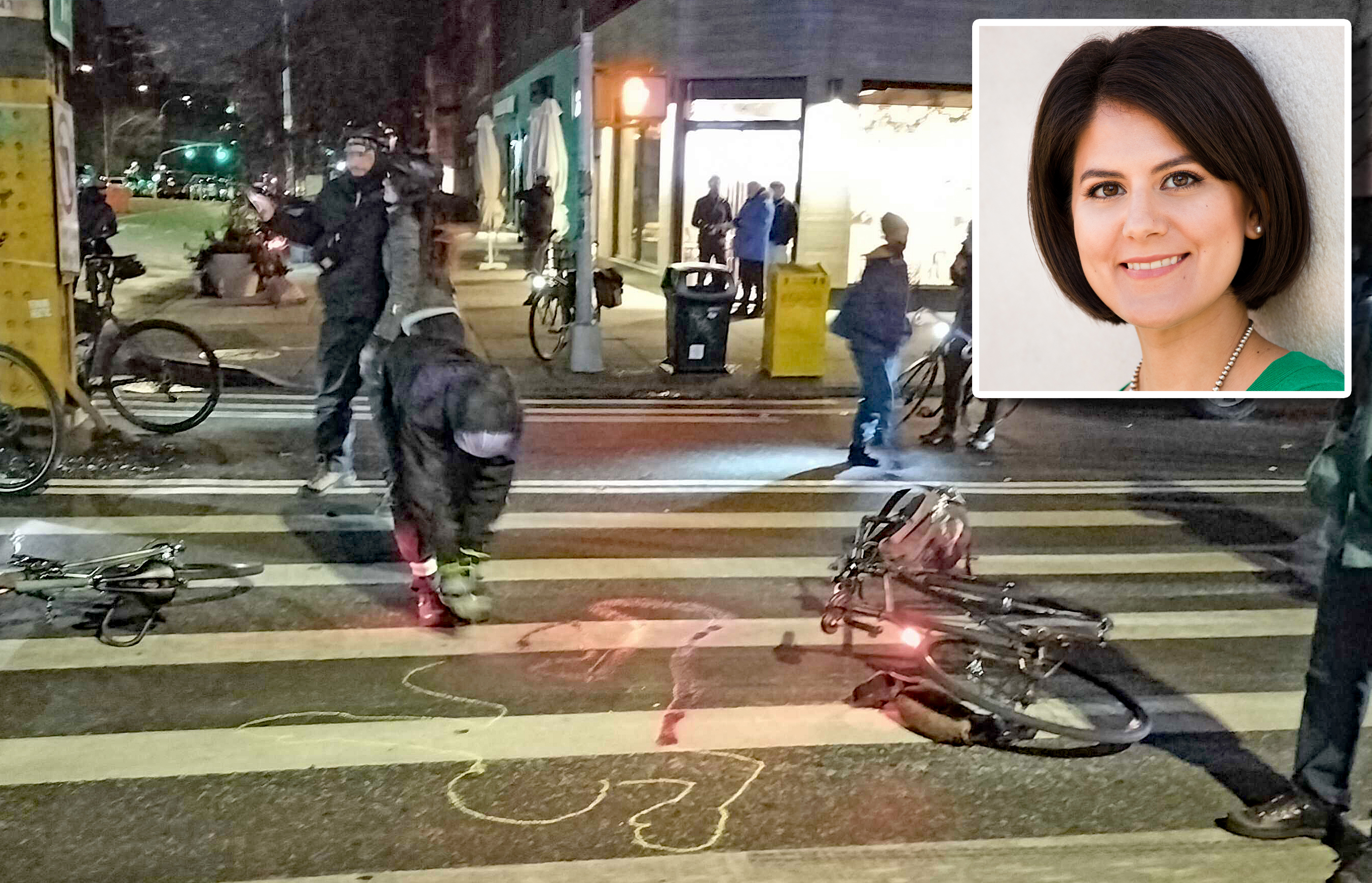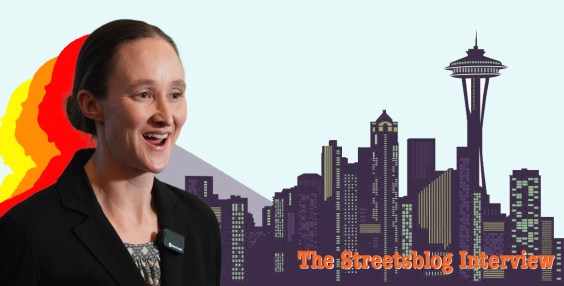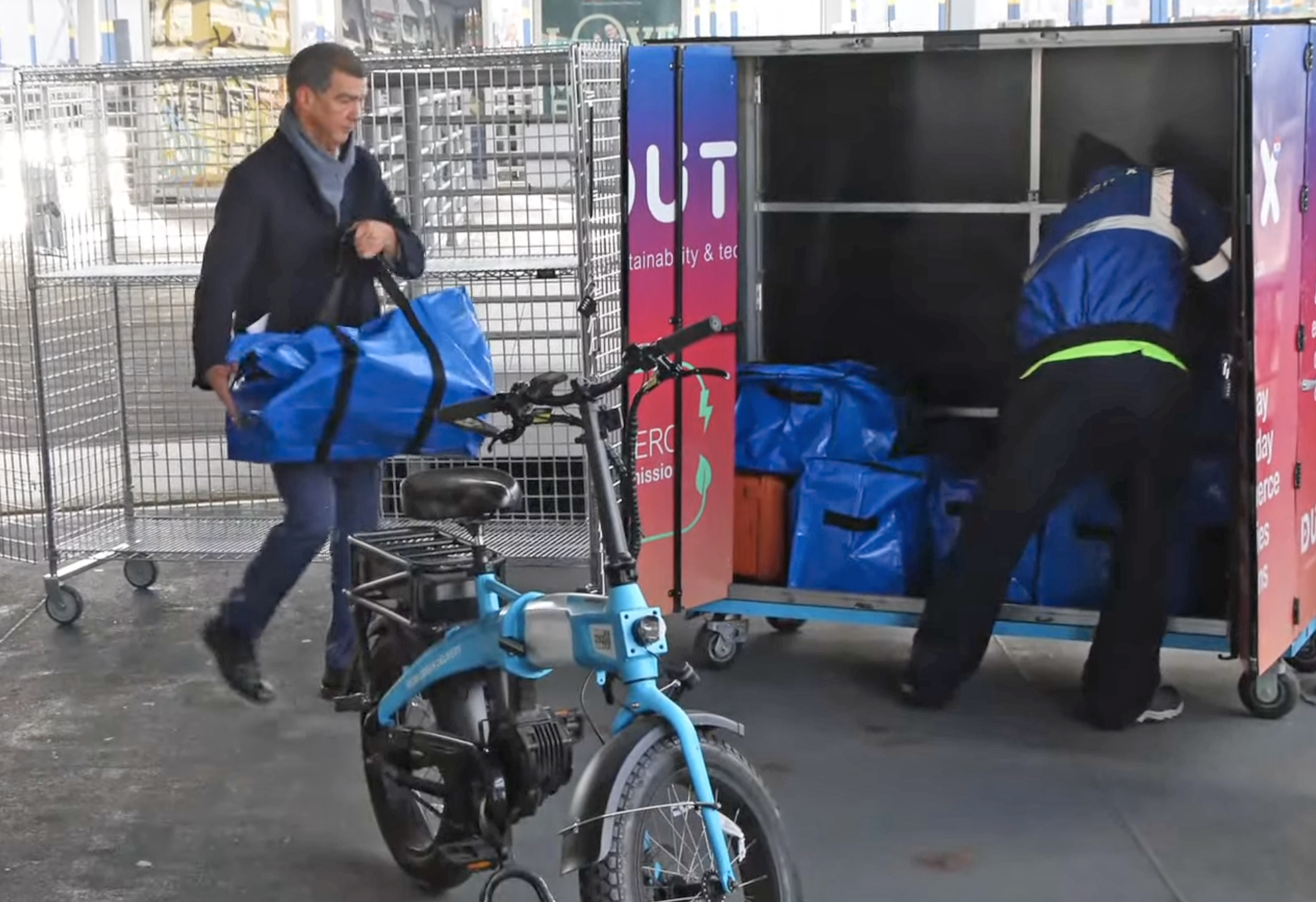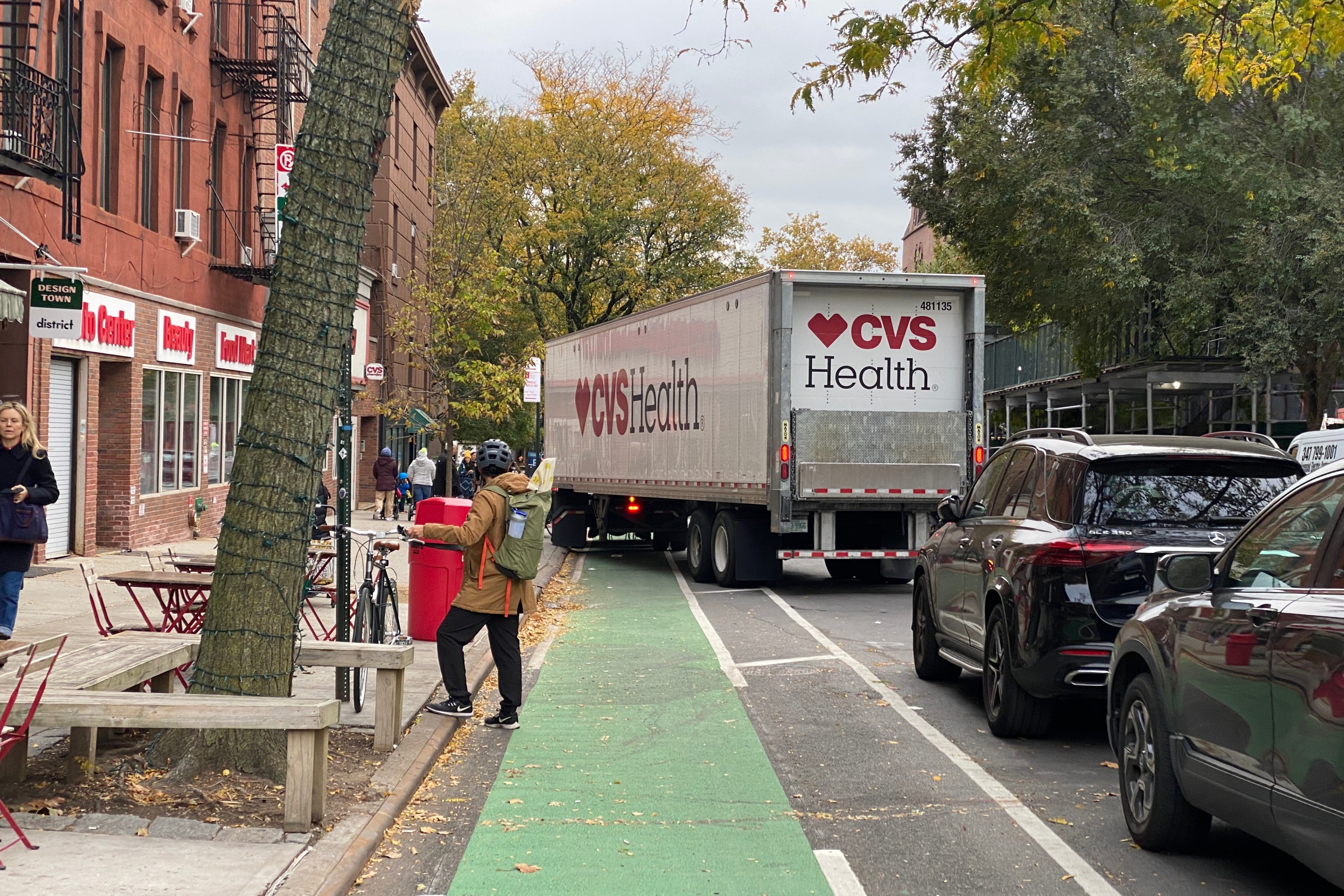Gov. Cuomo has announced a major taxpayer commitment towards funding a new Long Island Railroad station to serve a proposed new arena for the New York Islanders at Belmont Park. There is an existing, albeit part-time, LIRR platform at Belmont — exactly where the arena will be built — but the governor wants to put a full-time station about a half-mile away, requiring hockey-loving transit users to take shuttle buses. The $105-million (estimated!) plan raises many questions, many of which are asked below.

Gov. Cuomo claims that it will only cost $105 million to pay for a new full-time station between Bellrose and Queens Village on the Main Line and for the upgrades to the existing spur for part-time events at Belmont Park Arena station. Just how did he come up with this number? A reliable cost estimate takes more than just a press release with station renderings. What about costs to modify, upgrade or build new interlockings along the Main Line? Will there be any costs for modification to the ongoing Positive Train Control project? How will this project be integrated with Main Line Third Track, Jamaica Capacity Improvements and other nearby LIRR capital and routine maintenance projects? Is there a detailed project budget, procurement strategy, force account plan, track outage plan and schedule to validate both the $106 million cost and project completion to coincide with the opening of the Islanders Belmont Arena which is less than 27 months away?
Costs will be further refined as the project progresses through completion of the environmental review process, preliminary and final design, award of construction contracts followed by change orders to the base contracts during construction, due to last minute changes in scope or unforeseen site conditions.
If Cuomo, Empire State Development Corporation, MTA, LIRR, elected officials, consultants and their respective employees are so confident in the $106-million price tag, let them put up their respective retirement pensions, 401Ks and mortgage their homes as collateral. They can cover any inevitable future cost overruns.
There is a fatal flow in building a new station on the north side of the Main Line to serve the future Belmont Park Islanders Arena versus upgrading the existing station located within the Belmont Park perimeter.
Anyone in the transit industry knows that customers being asked to pay a premium fare always prefer a one seat ride. This is what is provided for most who attend events at Madison Square Garden or the Barclays Center in Brooklyn. Few Islanders fans coming from Nassau or Suffolk County will want to first drive to a local LIRR station, park their car, board the LIRR (and in some cases have to switch at Huntington. Mineola, Babylon or Ronkonkoma from a diesel to electric train) and then board a shuttle bus from the new LIRR station to the Islanders Arena (which is directly next to the existing Belmont Park LIRR platform).
Which trains from the Hempstead, Oyster Bay, Port Jefferson and Ronkonkoma branches will be serving the new Elmont LIRR station rush hour and non rush hour?
How many LIRR riders from Port Washington, Speonk, Babylon, Long Beach, Far Rockaway and West Hempstead branches will still have to change at Jamaica before being able to board an east bound train to reach the Belmont Islanders Arena?
The same will be true for those attending rock concerts and more than 100 other potential evening events when the Islanders are not in town. An overwhelming majority will go with a door to door one seat ride using their own car.
Imaging how long it would take 500 to a 1,000 LIRR riders exiting a train from this new station to board a shuttle for their final destination? There is no way you could simultaneously board 10 to 20 buses at the same time. Who will want to wait for a shuttle bus to the game or back to the LIRR platform?
It costs NYC Transit an average of $218 per hour to operate a bus. Even if the Empire State Development Corporation asked Nassau County NICE Bus to provide shuttle bus services, who knows if that agency can spare 10 to 20 buses between 6 and 8 p.m. when they may be needed to support rush hour service?
Who is going to purchase, operate and maintain electric shuttle buses? Someone will have to build a maintenance facility for the electric buses. Will there be enough equipment during peak periods to simultaneously serve both LIRR riders traveling to the Islanders Arena, hotel, conference center, movie theater and retail complex, while at the same time providing shuttle service within Belmont Park parking lots to the Arena? What are the capacity of these electric buses which can vary from 20 to 50 riders?
What will the costs for LIRR tickets be at the new Elmont Station — Zone 3 or Zone 4? Will the thousands of potential nearby Queens commuters be offered any weekday or weekend City Zone discount tickets?
Who will be responsible for building and maintaining the parking lot adjacent to the new Elmont LIRR station for commuters and those who want to attend both day and night events at the Islanders Belmont Arena? What will the parking fee be? Will LIRR commuters be offered weekly or monthly discounted parking fees? How will you deal with potential conflicts between those wanting to use the parking facility prior to events at the Islanders Arena versus daily commuters coming home from work? Will spaces be made available or reserved on a proportional basis?
There is no mention of the need for a bus terminal to accommodate Nassau Inter County Express, NYC Transit and private bus operators, who may establish new routes for serving the new Belmont Arena. Will upgrades to the existing Belmont Park LIRR station include a bus terminal to accommodate NICE bus, NYC Transit bus, MTA bus and private bus charter operators who may establish new routes for serving the Islanders Belmont Arena?
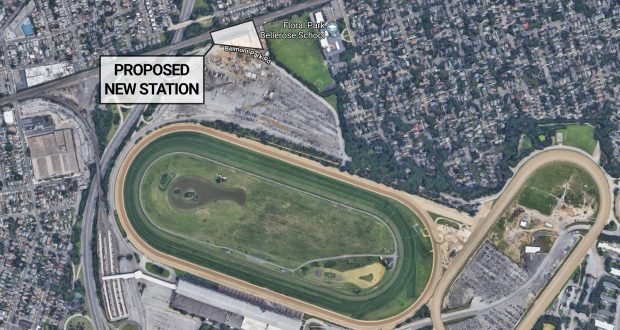
There are several thousand reverse-commuters from New York City who travel from either Flushing or Jamaica to jobs or schools in Nassau County via NICE Bus. Using the Metro Card with a free transfer from the NYC Transit subway to NICE Bus, this only cost $2.75. They ride the bus rather than more expensive LIRR. The same will be true many hundreds of future employees at the Islanders arena, hotel, retail, restaurants and conference center who will be dependent upon bus service to access job opportunities. In many cases, they don't own a car and can't afford LIRR premium fares. How is the Empire State Development Corporation planning for establishment of these future services? Who will pay for these transit improvements?
There are so many other questions:
- Does the LIRR intend to ask Main Line Third Track Construction Contractors to perform this work via a construction contract change order to their existing $1.8-billion contract?
- How will the Third Track joint venture members including Dragados USA, John P. Picone, CCA Civil, Halmar International, Stantec and Cameron Engineering perform these tasks?
- How would this additional work be integrated into the master contract schedule which already includes 50 major activities?
- Are there sufficient additional employees available to perform this additional work while keeping the original work on schedule?
- How will MTA legal and procurement staff justify this change order to the existing contract?
- How will the MTA board justify voting in favor of this change order?
- How will the LIRR integrate this work into the upcoming 2020 and 2021 master track outages and force account plans for the agencies overall annual capital and maintenance track programs?
In January 2018, former MTA Chairman Joe Lhota informed the Empire State Development Corporation that there is no current Penn Station capacity to support new Belmont Park service. He said that his agency must first perform a planning study. The study started in July with a promised completion date by end of September, 2018. Why the 11-month delay in making it public? They have yet to even make a presentation to the monthly LIRR or full MTA Committee Board meetings. The MTA has never publicly committed to a new schedule and date for release of the study.
What happened to open transparency promised by Gov. Cuomo for all state agencies and public authorities including the MTA? Is there something within the study contents they want to continue to hide from commuters, taxpayers and elected officials?
Larry Penner is a transportation historian, writer and advocate who worked 31 years for the U.S. Department of Transportation's Federal Transit Administration Region 2 New York Office. During that time, he was involved in the development, review, approval and oversight for billions in capital projects and programs for the MTA, NYC Transit, Long Island Rail Road, Metro North Rail Road, MTA Bus, NYC Department of Transportation and 30 other transit agencies in the New York area.


